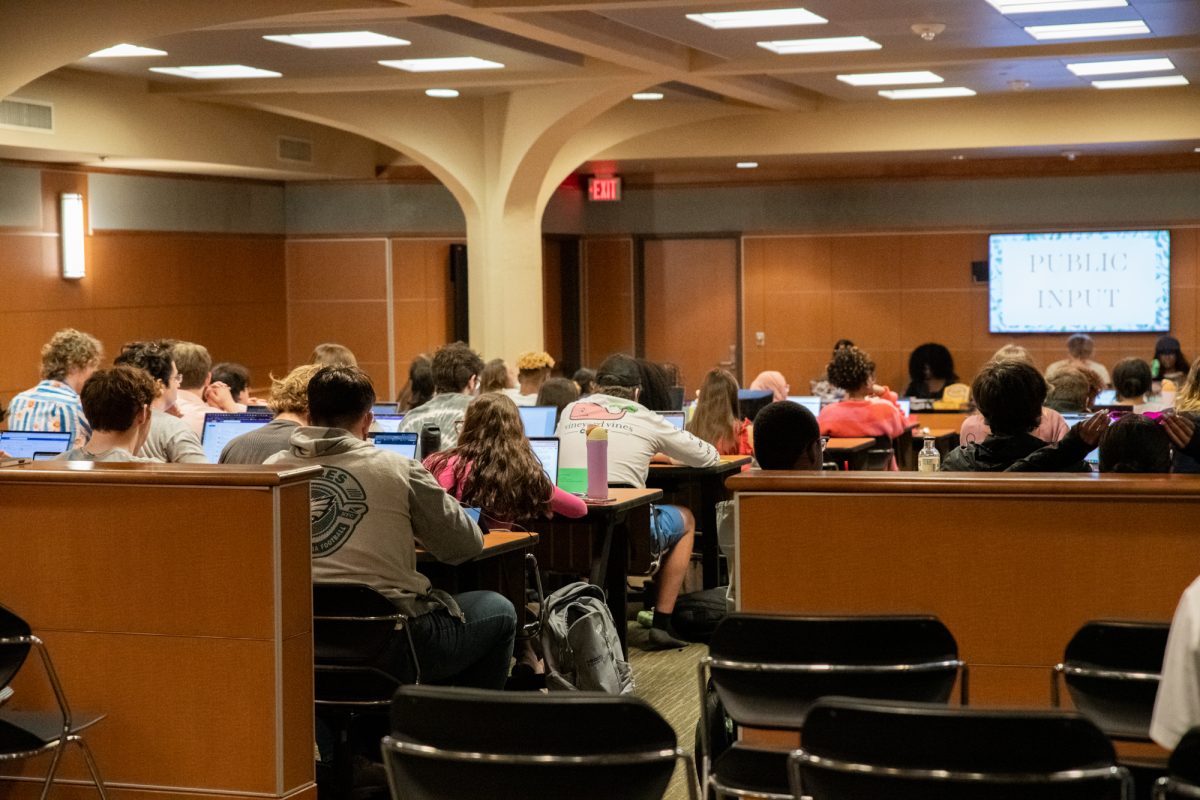Only 39 percent of students were introduced to anti-hazing policies when joining teams and organizations, according to the University of Maine’s national study “Hazing in View: College Students at Risk.” Organizations on campus want a higher number.
Representatives from Campus Life and the Office of Student Advocacy and Accountability asked Student Government Senate to allocate $5,000 to fund an anti-hazing video and campaign at its April 15 meeting.
SG Speaker of the Senate Adam Grashoff and SG senator Alexandra de Gravelle authored the finance bill, which passed 100 percent in favor.
Campus Life graduate assistant Margaret Vienne and Accountability graduate assistant Reem Al-Juraid said they hope to better inform students about hazing practices and consequences with their campaign.
“Hazing, to us, has no face — that’s kind of the tagline we’ve been going with,” Vienne said.
The majority of money allocated will fund the video’s production.
Grashoff said LSU President F. King Alexander pushed for a professionally made video — one that will last for years and can be shown all over campus.
Vienne said their team spoke to Associate Vice Chancellor and Dean of Students K.C. White about playing the 45- to 60-second long video in Tiger Stadium in the fall.
Another portion of the funds will go toward the campaign materials, like posters and advertisements.
SG senators agreed that a student-funded campaign would have more impact than a project funded by the University.
“Let’s fund this because it’s ultimately going to affect us and it’s a message that students need to give to students because that’s who we really listen to,” de Gravelle said. “We’re influenced by each other, so I really think that it’s good we’re funding this and that Student Government is taking this on.”
Vienne said the project will launch this summer.
The University of Maine’s study showed nine out of 10 students experiencing hazing behaviors do not consider themselves to have been hazed.
“We were tasked with the project of doing some kind of hazing education, anti-hazing project,” Vienne said. “We were really wanting to have a campus-wide conversation about what it means to, not only talk about hazing, but try to prevent or bring to light important conversations surrounding hazing.”
Vienne stressed that hazing is not just a Greek issue.
The University of Maine study showed that 74 percent of varsity athletes surveyed experienced hazing — roughly the same as the percent of fraternity and sorority members who experienced hazing.
Trailing behind by 10 percent, 64 percent of members in club sports said they experienced at least one behavior of hazing, according to the University of Maine study.
“We know it’s not just a Greek issue, so that is a big thing we want you all to know: This is not just Greek-focused,” Vienne said. “It’s really targeting athletic groups, student organizations and different stakeholders on campus where we know hazing is occurring.”
The University of Maine’s study also listed performing arts organizations, service fraternities and sororities, intramural teams, recreation clubs, academic clubs and honor societies as areas where hazing occurred to at least 20 percent of members.
LSU SG allocates $5,000 to fund anti-hazing campaign
April 21, 2015
Student Government Senator Alexandra de Gravelle authored a finance bill allocating $5,000 to fund an anti-hazing video and campaign with a tentative Fall deadline.
More to Discover











